-
 Bitcoin
Bitcoin $117500
2.15% -
 Ethereum
Ethereum $3911
6.19% -
 XRP
XRP $3.316
10.79% -
 Tether USDt
Tether USDt $1.000
0.01% -
 BNB
BNB $787.2
2.24% -
 Solana
Solana $175.2
4.15% -
 USDC
USDC $0.9999
0.00% -
 Dogecoin
Dogecoin $0.2225
8.40% -
 TRON
TRON $0.3383
0.28% -
 Cardano
Cardano $0.7868
6.02% -
 Stellar
Stellar $0.4382
9.34% -
 Hyperliquid
Hyperliquid $40.92
7.56% -
 Sui
Sui $3.764
7.63% -
 Chainlink
Chainlink $18.48
10.66% -
 Bitcoin Cash
Bitcoin Cash $582.1
1.88% -
 Hedera
Hedera $0.2601
6.30% -
 Avalanche
Avalanche $23.33
4.94% -
 Ethena USDe
Ethena USDe $1.001
0.02% -
 Litecoin
Litecoin $122.3
2.04% -
 UNUS SED LEO
UNUS SED LEO $8.969
-0.27% -
 Toncoin
Toncoin $3.339
0.86% -
 Shiba Inu
Shiba Inu $0.00001287
4.30% -
 Uniswap
Uniswap $10.43
7.38% -
 Polkadot
Polkadot $3.861
5.08% -
 Dai
Dai $1.000
0.02% -
 Bitget Token
Bitget Token $4.513
3.41% -
 Monero
Monero $267.7
-6.18% -
 Cronos
Cronos $0.1499
4.14% -
 Pepe
Pepe $0.00001110
5.15% -
 Aave
Aave $284.9
8.28%
What are the investor protection measures for ICOs?
ICO investor protection is fragmented; thorough due diligence, including legal research, team vetting, and project viability assessment, is crucial for mitigating risks in this largely unregulated market.
Mar 22, 2025 at 06:57 am
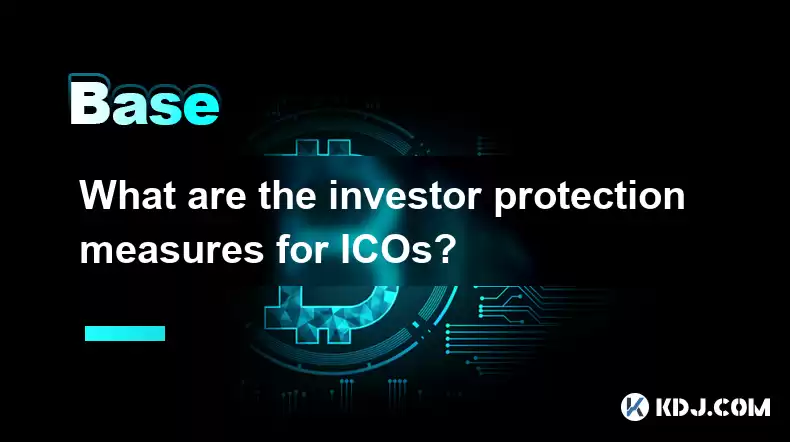
Key Points:
- ICO investor protection is largely unregulated and varies significantly by jurisdiction.
- Due diligence is crucial; there's no central authority guaranteeing ICO success or safety.
- Understanding legal frameworks, team background, and project viability are vital for mitigation.
- Diversification and risk management strategies are essential for mitigating potential losses.
- Regulatory bodies are increasingly focusing on ICOs, but comprehensive protection remains limited.
What are the investor protection measures for ICOs?
The world of Initial Coin Offerings (ICOs) remains largely unregulated, leaving investors vulnerable. Unlike traditional securities offerings which often have robust investor protection mechanisms, the decentralized nature of cryptocurrencies and the nascent stage of ICO regulation mean investor protection is fragmented and inconsistent. There's no single, universally accepted set of measures to safeguard ICO investors.
One of the most crucial aspects of investor protection in the ICO space is performing thorough due diligence. This involves scrutinizing the project's whitepaper for inconsistencies, researching the team's background and experience, and independently verifying the technology's viability. Remember, there's no guarantee of success, and many ICOs fail.
Legal frameworks surrounding ICOs differ widely across jurisdictions. Some countries actively regulate ICOs, while others maintain a more laissez-faire approach. Understanding the applicable legal framework is vital. Investors should be aware of the legal implications in their region concerning the specific ICO they are considering. This might involve understanding securities laws or other relevant regulations.
Risk management is paramount. Never invest more than you can afford to lose. Diversification across multiple ICOs can help mitigate the risk associated with a single project failing. Don't put all your eggs in one basket. Spread your investments across various projects to minimize potential losses.
Understanding the mechanics of the ICO itself is crucial. This includes comprehending the tokenomics, the distribution model, and the intended use of the funds raised. A transparent and well-defined process is a positive sign, while obfuscation or lack of clarity should raise red flags. Scrutinize the token utility and its potential for future growth.
The team behind the project is another crucial factor. Investigate their experience, reputation, and track record. A strong and credible team significantly increases the chances of successful project execution. Look for evidence of their expertise in the relevant field and their commitment to the long-term success of the project. Transparency in team member backgrounds is essential.
The project's whitepaper is the cornerstone of any ICO. Thoroughly examine its content for technical feasibility, market analysis, and financial projections. Look for realistic goals and a well-defined roadmap. A poorly written or unrealistic whitepaper is a major warning sign. Independent verification of claims made within the whitepaper is highly recommended.
Beyond these measures, investors can seek advice from financial professionals experienced in the cryptocurrency space. These professionals can provide guidance on assessing risks and making informed investment decisions. However, it's crucial to remember that even experienced professionals cannot guarantee success in the volatile ICO market.
While regulatory bodies are increasingly focusing on ICOs, aiming to provide greater investor protection, comprehensive and consistent protection remains elusive. Many jurisdictions are still grappling with how best to regulate this novel asset class. The lack of a centralized regulatory body overseeing ICOs globally adds to the challenges.
Common Questions and Answers:
Q: Are ICOs regulated?
A: The regulatory landscape for ICOs varies widely depending on the jurisdiction. Some countries have specific regulations in place, while others are still developing their approach or have no specific rules. The lack of consistent global regulation leaves many ICOs in a grey area.
Q: What are the risks of investing in ICOs?
A: ICOs are inherently risky investments. There's a high chance of complete loss, as many ICO projects fail to deliver on their promises. Scams are also prevalent, making due diligence crucial. Market volatility and technological risks further amplify the uncertainty.
Q: How can I protect myself from ICO scams?
A: Thorough due diligence is paramount. Research the team, technology, whitepaper, and legal framework. Be wary of unrealistic promises and guaranteed returns. Verify information independently and avoid investing based solely on hype or social media influence.
Q: What is the role of smart contracts in ICO investor protection?
A: Smart contracts can enhance transparency and automate certain aspects of an ICO, but they don't inherently provide investor protection. A poorly designed smart contract can still be exploited, and the underlying project can still fail, regardless of the smart contract's functionality.
Q: Are there any insurance options for ICO investments?
A: Currently, there are limited insurance options specifically designed for ICO investments. Traditional insurance products may not cover losses related to cryptocurrency investments, especially ICOs. The high risk and volatility of the market make it challenging for insurers to offer comprehensive coverage.
Q: What is the role of government regulation in protecting ICO investors?
A: Government regulation aims to bring transparency and accountability to the ICO market. However, the speed and effectiveness of regulatory changes vary across jurisdictions. Clearer rules and enforcement can help mitigate risks, but complete protection is not guaranteed even with regulation.
Disclaimer:info@kdj.com
The information provided is not trading advice. kdj.com does not assume any responsibility for any investments made based on the information provided in this article. Cryptocurrencies are highly volatile and it is highly recommended that you invest with caution after thorough research!
If you believe that the content used on this website infringes your copyright, please contact us immediately (info@kdj.com) and we will delete it promptly.
- XRP ETF, Bitcoin ETF, and Japan: A New Era for Crypto Investing?
- 2025-08-08 14:30:12
- Crypto, Congress, and Bills: Navigating the Regulatory Landscape in 2025
- 2025-08-08 14:30:12
- Union Jack Oil, Unused Gas, and Bitcoin: A New York Minute on UK's Crypto-Energy Play
- 2025-08-08 14:50:12
- Bitcoin Price: Bullish Flag Points to $123K Breakout?
- 2025-08-08 14:50:12
- Crypto Group's WNBA Dildo Toss: Meme Coin Mania or Just Plain Dumb?
- 2025-08-08 14:55:13
- Stablecoins, Hong Kong, and On-Chain Finance: Navigating the Regulatory Maze
- 2025-08-08 12:30:12
Related knowledge
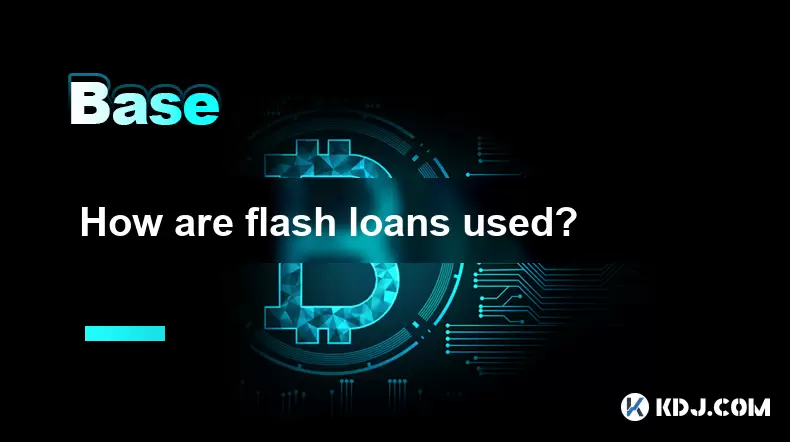
How are flash loans used?
Aug 08,2025 at 01:08pm
Understanding Flash Loans in Decentralized FinanceFlash loans are a unique innovation within the decentralized finance (DeFi) ecosystem, allowing user...
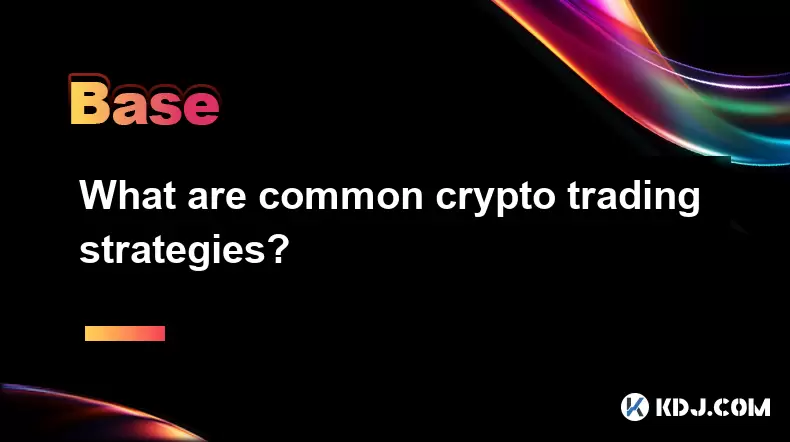
What are common crypto trading strategies?
Aug 08,2025 at 12:42pm
Understanding Trend Following in Crypto TradingTrend following is one of the most widely adopted crypto trading strategies due to its simplicity and a...
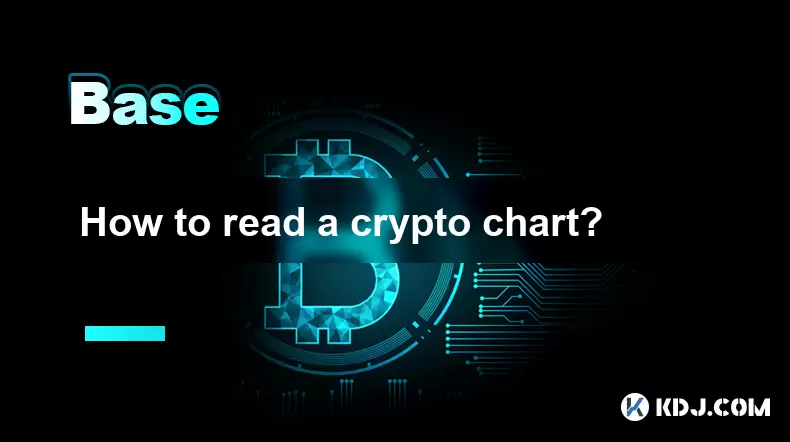
How to read a crypto chart?
Aug 08,2025 at 10:35am
Understanding the Basics of a Crypto ChartA crypto chart is a visual representation of the price movements of a cryptocurrency over time. These charts...
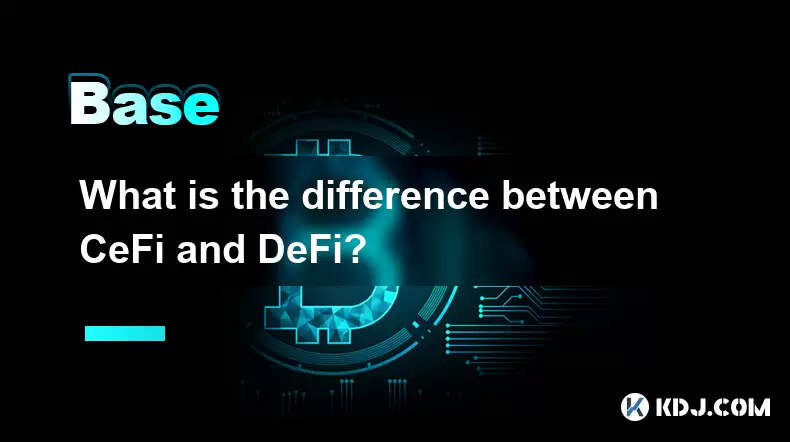
What is the difference between CeFi and DeFi?
Jul 22,2025 at 12:28am
Understanding CeFi and DeFiIn the world of cryptocurrency, CeFi (Centralized Finance) and DeFi (Decentralized Finance) represent two distinct financia...
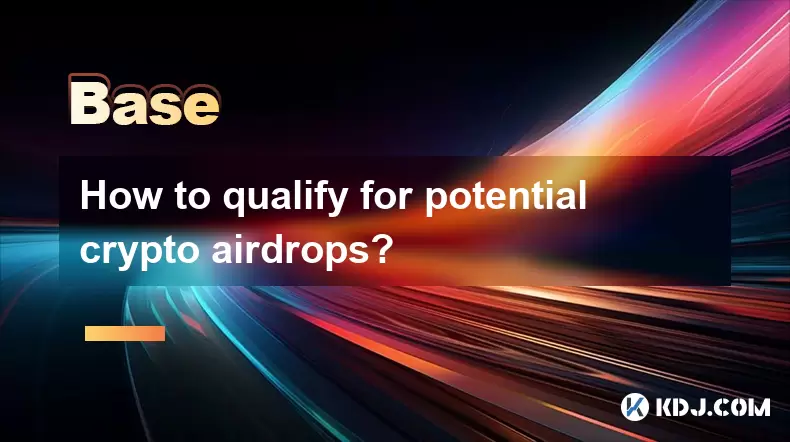
How to qualify for potential crypto airdrops?
Jul 23,2025 at 06:49am
Understanding What Crypto Airdrops AreCrypto airdrops refer to the distribution of free tokens or coins to a large number of wallet addresses, often u...
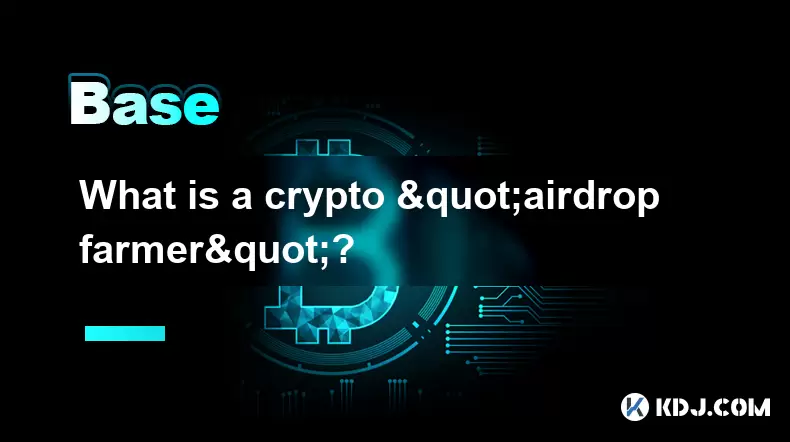
What is a crypto "airdrop farmer"?
Jul 24,2025 at 10:22pm
Understanding the Role of a Crypto 'Airdrop Farmer'A crypto 'airdrop farmer' refers to an individual who actively participates in cryptocurrency airdr...

How are flash loans used?
Aug 08,2025 at 01:08pm
Understanding Flash Loans in Decentralized FinanceFlash loans are a unique innovation within the decentralized finance (DeFi) ecosystem, allowing user...

What are common crypto trading strategies?
Aug 08,2025 at 12:42pm
Understanding Trend Following in Crypto TradingTrend following is one of the most widely adopted crypto trading strategies due to its simplicity and a...

How to read a crypto chart?
Aug 08,2025 at 10:35am
Understanding the Basics of a Crypto ChartA crypto chart is a visual representation of the price movements of a cryptocurrency over time. These charts...

What is the difference between CeFi and DeFi?
Jul 22,2025 at 12:28am
Understanding CeFi and DeFiIn the world of cryptocurrency, CeFi (Centralized Finance) and DeFi (Decentralized Finance) represent two distinct financia...

How to qualify for potential crypto airdrops?
Jul 23,2025 at 06:49am
Understanding What Crypto Airdrops AreCrypto airdrops refer to the distribution of free tokens or coins to a large number of wallet addresses, often u...

What is a crypto "airdrop farmer"?
Jul 24,2025 at 10:22pm
Understanding the Role of a Crypto 'Airdrop Farmer'A crypto 'airdrop farmer' refers to an individual who actively participates in cryptocurrency airdr...
See all articles

























































































